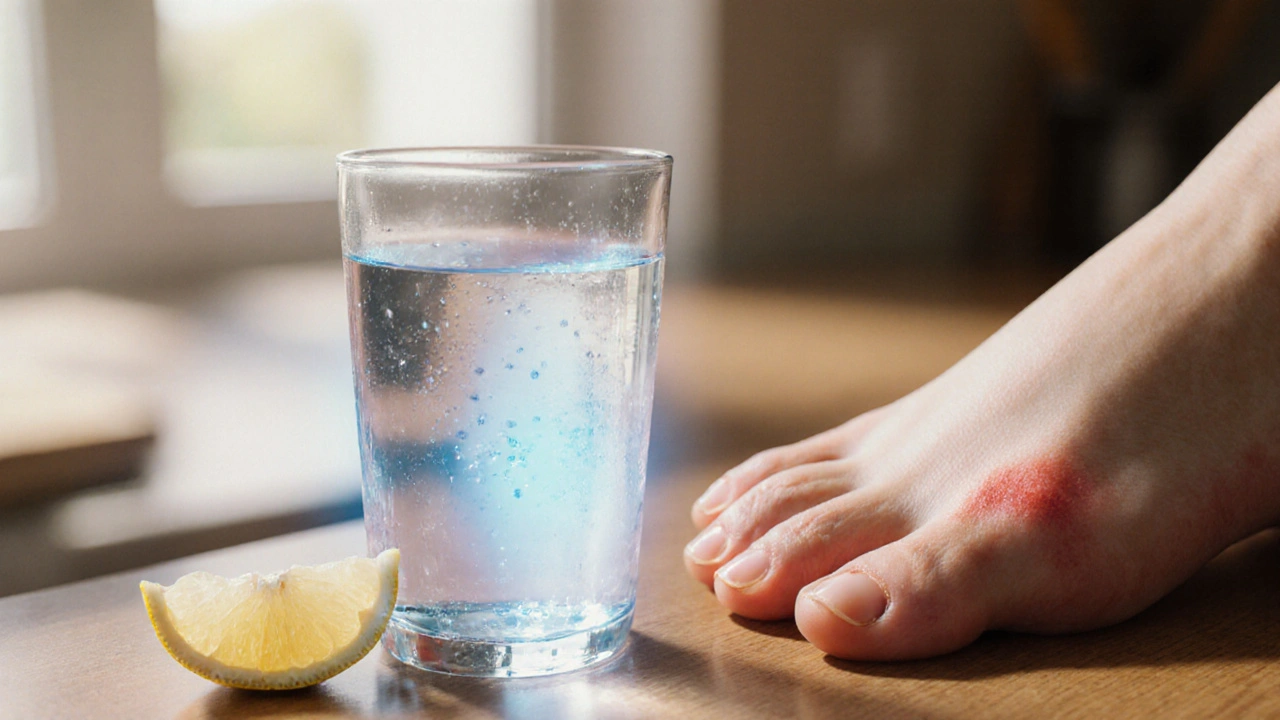Gout Prevention
When tackling gout prevention, the set of habits and treatments designed to keep uric acid in check and avoid painful flare‑ups. Also known as gout prophylaxis, it protects joints and improves overall well‑being. Gout prevention isn’t a one‑size‑fits‑all plan; it blends everyday choices with medical guidance.
One core player is uric acid, a waste product that, when elevated, can crystallize in joints and trigger gout attacks. Managing uric acid levels starts with what you put on your plate. Diet, especially low‑purine foods, adequate hydration, and moderate alcohol intake directly lowers the risk of crystal formation. Equally important is lifestyle, regular exercise, weight control, and stress reduction—all of which influence how the body processes purines. When these natural measures need a boost, medication, such as allopurinol or febuxostat, can keep uric acid from reaching dangerous highs. Together, these elements create a layered defense that minimizes flare‑ups and preserves joint health.
Key Strategies to Stop Gout Before It Starts
First, identify high‑purine culprits—organ meats, certain seafood, and sugary drinks—then replace them with fruits, vegetables, and low‑fat dairy. Second, aim for at least eight glasses of water a day; hydration helps flush excess uric acid through the kidneys. Third, keep a steady exercise routine; even moderate walking improves metabolism and aids weight management, which in turn reduces uric acid production. Fourth, limit alcohol, particularly beer, because it both raises uric acid and hampers its excretion. Finally, if blood tests show persistent elevation, discuss prescription options with your doctor; the right medication can lower uric acid long‑term without daily spikes.
Below you’ll find a curated set of articles that dive deeper into each of these areas—whether you’re curious about the science behind uric acid, need practical diet swaps, or want to compare the latest gout‑friendly meds. Use them as a toolbox to build your personalized gout‑prevention plan and stay ahead of the pain.

Gout and Dehydration: Why Hydration Matters for Managing Gout
Learn why staying hydrated is crucial for gout management, how dehydration raises uric‑acid levels, and practical water‑intake tips to prevent painful attacks.
View More




